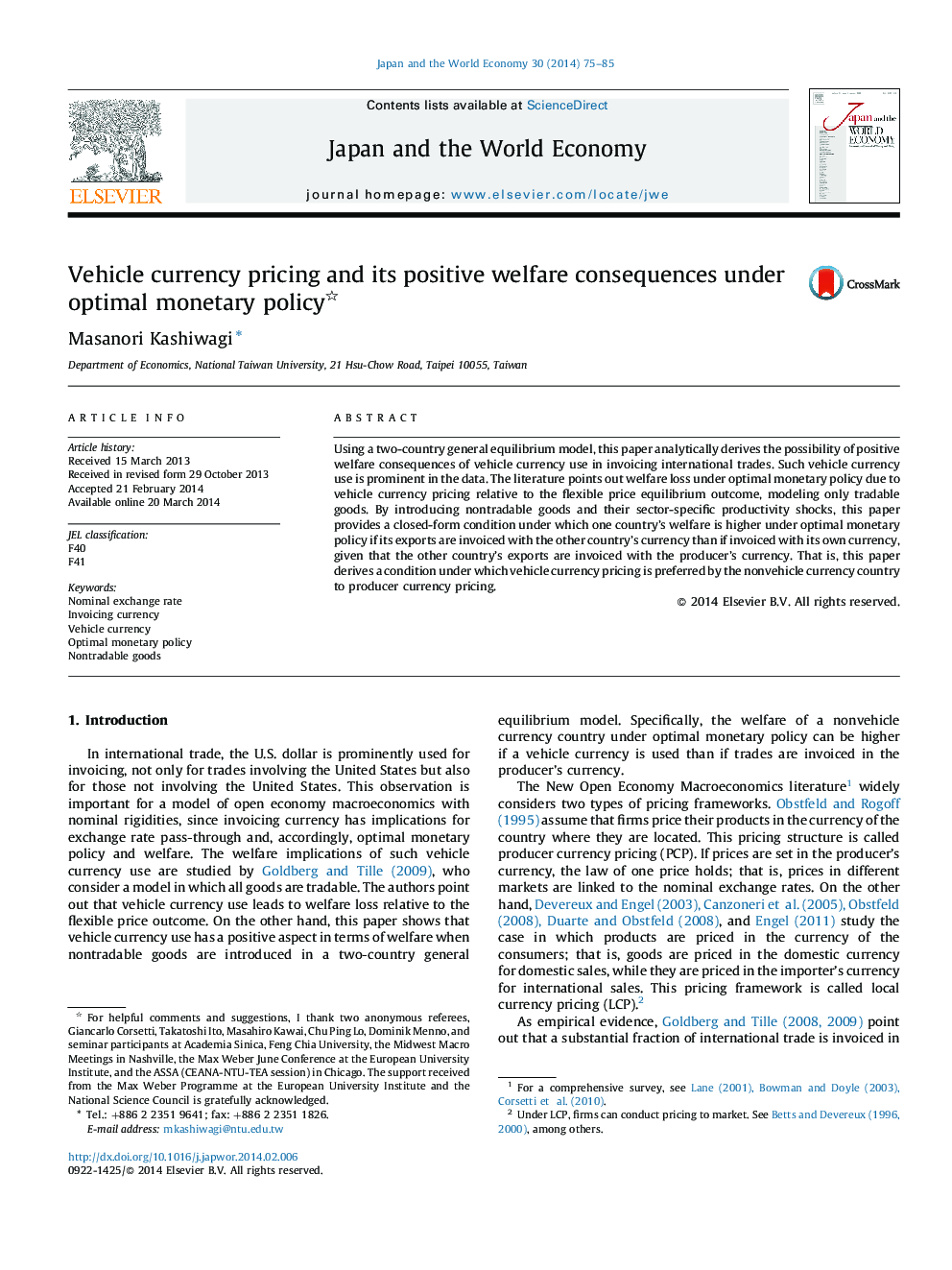| Article ID | Journal | Published Year | Pages | File Type |
|---|---|---|---|---|
| 5086139 | Japan and the World Economy | 2014 | 11 Pages |
â¢Using a two-country model, this paper uncovers the possibility of positive welfare consequences of vehicle currency use in invoicing international trades.â¢This paper derives a closed-form condition under which vehicle currency pricing is preferred to producer currency pricing by the nonvehicle currency country.â¢The introduction of nontradable goods and their sector-specific productivity shocks is crucial for the result.
Using a two-country general equilibrium model, this paper analytically derives the possibility of positive welfare consequences of vehicle currency use in invoicing international trades. Such vehicle currency use is prominent in the data. The literature points out welfare loss under optimal monetary policy due to vehicle currency pricing relative to the flexible price equilibrium outcome, modeling only tradable goods. By introducing nontradable goods and their sector-specific productivity shocks, this paper provides a closed-form condition under which one country's welfare is higher under optimal monetary policy if its exports are invoiced with the other country's currency than if invoiced with its own currency, given that the other country's exports are invoiced with the producer's currency. That is, this paper derives a condition under which vehicle currency pricing is preferred by the nonvehicle currency country to producer currency pricing.
